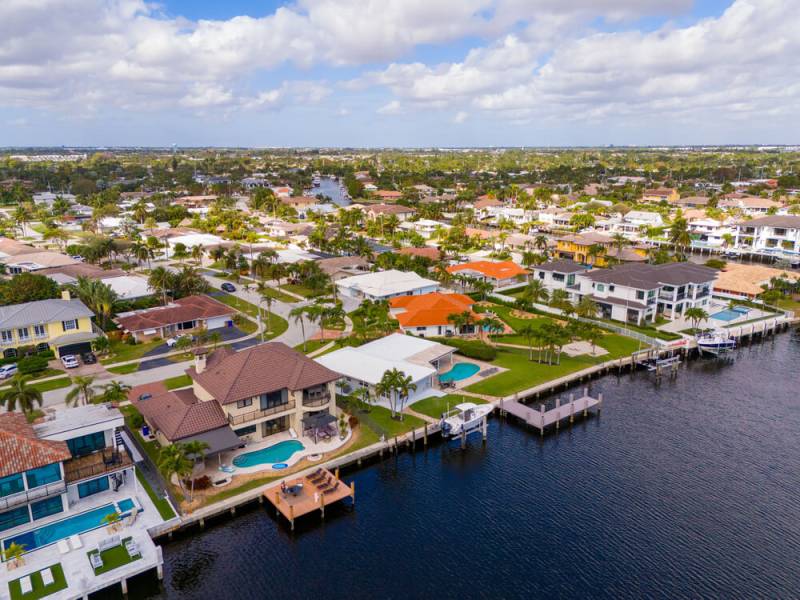Real estate investments abroad have become a popular avenue for Israeli investors seeking to grow personal wealth beyond geographic boundaries and the local market. Leading investment destinations tend to focus on established Western countries with stable, proven economies, including Florida in the U.S., which offers numerous advantages for investors.
Why Florida for Real Estate Investments?
Several factors contribute to the growing interest in real estate investments in Florida:
Florida is the third most populous state in the U.S., home to over 22 million residents.
It has a strong economy, ranking fourth among U.S. states and contributing 5% of the U.S. GDP.
The favorable climate attracts over 100 million tourists annually.
Known as a popular retirement destination, Florida attracts affluent retirees looking for high quality of life.
Florida boasts high occupancy rates, with 93% of all residential properties occupied.
The state’s employment growth averages over 5.1% per year, which drives positive migration and demand for housing.
According to Money Magazine, five counties in Florida are among the top ten places to live in the U.S.
Attractive Real Estate Prices in Florida
While Florida attracts a wealthy population, its real estate market, often characterized by single-family homes, offers investment opportunities across property types. Prices for single-family homes have steadily risen since 2010, with the average home costing over $400,000.
Israeli investors often look for investment avenues that focus on below-market acquisitions, property improvements, and a potential return not solely based on natural market appreciation. Such opportunities are often found in high-demand areas with value-add projects led by reputable local developers who seek capital to complete projects, typically within 36 months.
Investment Methods: Returns from Appreciating Properties and Short-Term Profit
This investment model often focuses on returns from asset appreciation in group investments relative to each investor’s share, allowing Israeli investors to participate in high-yield opportunities with a relatively low entry threshold, typically around $50,000.
Another option is investing in projects focused on refurbishing existing buildings or redeveloping lots purchased by developers in high-demand zones. These assets are managed by the developer or management company, leased at premium rates, and often generate long-term income.
Top Real Estate Markets in Florida
Miami: As Florida’s second-largest city, Miami has about 440,000 residents and offers a mix of upscale apartments and single-family homes. While property prices are high, rental yields in Miami are substantial, with average monthly rents of $2,100–$3,300 for apartments and $4,400–$6,200 for single-family homes. Real estate investments in Miami benefit from high demand, quality of life, and steady returns, creating a lower-risk, high-potential environment.
Tampa: Tampa’s high percentage of renters compared to homeowners makes it a favorable market for investors interested in rental income. Investors typically target two- and three-bedroom apartments, especially in the downtown area. Average rents range from $2,200–$2,600 per month, with a 21% increase in rent prices observed in 2023.
Orlando: Known for its entertainment and tourism sectors, Orlando is home to Disney World, SeaWorld, and Universal Studios. Around 61% of real estate assets in Orlando are owned by investors, rented out to locals for long-term leases or tourists for shorter stays. Real estate investments in Orlando are often in commercial, business, or tourism properties, attracting high-net-worth investors seeking long-term rental income.
How to Invest Responsibly?
For real estate investments in Florida or other foreign markets, investors should act prudently, seek professional guidance, and carefully evaluate the investment type and property. Key considerations include:
-Invest in Advanced-Stage Projects: Avoid “paper-only” investments by choosing projects already in advanced planning or construction phases.
-Invest in Multi-Unit Projects: Prefer projects with multiple residential units in multi-family complexes or apartment buildings, rather than single properties. This diversification reduces risk and provides a lower entry threshold.
-Choose Reputable Local Developers: Work with experienced, reputable local developers with proven success in similar projects.
-Focus on High-Demand Areas: Invest in cities, neighborhoods, and high-demand areas rather than relying on anticipated future development.
SDB assists Israeli clients in identifying effective overseas investment opportunities, providing a full range of services, including legal support. The company offers various short-term projects ranging from 18 to 36 months, tailored to each investor’s needs and goals.











